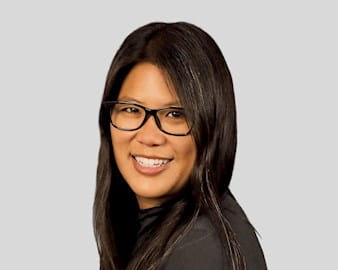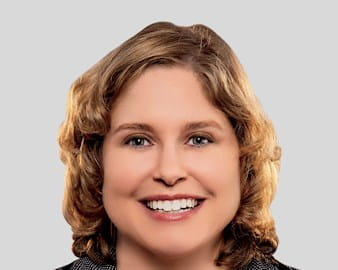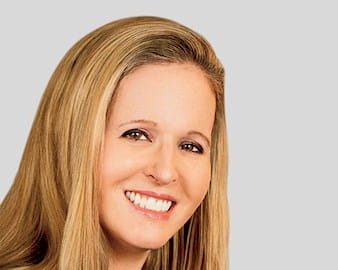
Three alumni share their insights into customer-centric retail, strategic collaboration, and problem-solving when challenges arise.
- By
- May 01, 2016
- Strategy


The Challenge: Apple’s customers had evolved, and Cheryl Eng’s retail programs needed to keep pace. Customers could participate in small group demos intended to introduce them to Apple, the Mac, and later iPhones and iPads. But as technology became ubiquitous, basic tutorials weren’t cutting it for Apple owners. Customer feedback showed that “we weren’t meeting their needs. They wanted to capture memories from a child’s birthday party, but didn’t know how to do it in the best way,” Eng said. Addressing this need required a new strategy, not only to enhance the customer experience, but to change the mindset of senior leadership.
The Strategy: Rolling out an entirely new learning strategy for Apple’s 470-plus stores across 18 countries required prioritizing customer and team needs. The plan empowered a dedicated team of trainers to lead sessions such as “Enhance Your Photos.” Store teams were given autonomy, which meant a photography workshop in Tokyo would look different from one in Paris. Eng launched a global pilot that convinced senior leadership that the changes worked across cultures and store environments.
“Be on guard against the power of the status quo.”
— Cheryl Eng
Eight months after the initial concept, the program overhaul rolled out globally. Customer and employee feedback were overwhelmingly positive, and net promoter scores jumped on every dimension except one: availability. The new format was so popular that guidance and schedules had to be adjusted to meet customer demand.
The Takeaway: Be on guard against the power of the status quo. With time and turnover, heuristics can morph into rules that impede fresh situational assessments. A simple strategy to combat this problem is to start with the customer needs (don’t forget that employees are customers too) and work your way backward. Then apply a clear vision to ensure that proposals are viable and will exceed expectations when rolled out.

The Challenge: In 2009, Walmart’s electronics merchants and its strategy group, led by Leslie Fletcher, identified an opportunity in the wireless business. At the time, postpaid wireless plans required long-term service contracts in exchange for subsidizing the purchase of a new phone, which could cost the customer more over time than buying a phone up front. The postpaid market also depended greatly on credit checks, which excluded some of Walmart’s shoppers. The company wanted to create a postpaid model to make family plans more affordable and accessible. “Our mission after all was to ‘save people money so they can live better,’” Fletcher said.
The Strategy: Walmart developed a new no-contract/no-credit-check postpaid plan to complement its existing prepaid “Straight Talk” offering. They teamed up with T-Mobile to create “Walmart Family Mobile.” The plan enabled customers to bring their own phones, removing the barrier of having to buy a new phone. It also offered an unlimited voice/text and sharable data package for a competitive price—under $100 a month for a family of three.
“The bigger success was around total savings to the customer.”
— Leslie Fletcher
Comparably, at the time, plans from phone carriers charged more than $100 for a single line. The combined effect of plans like Family Mobile and Straight Talk eventually contributed to the industry’s move toward lower-cost plans with sharable data. (There are similar plans in market now from AT&T, Verizon, Sprint, and T-Mobile.)
The Takeaway: That the industry moved is not a disappointment for the retailer. In fact, Walmart embraces a long-held belief that the savings from everyday low prices benefit not only the retailer, but suppliers and customers, too. “The bigger success was around total savings to the customer,” Fletcher said. Delivering on your firm’s broader mission (in this case helping customers save money) can be as—or even more—important to total industry dynamics than what specific benefits accrue to the firm.

The Challenge: In 2014, when Deborah Weinswig joined Fung Global Retail & Technology, a start-up within Hong Kong-based Fung Group, she had some experience working at a start-up and mentoring start-ups, but her background was in sell-side research, where she was recognized as Wall Street’s top retail analyst for nearly a decade. At Fung Group, Weinswig was charged with heading up an internal think tank, building the company’s research capabilities, and providing thought leadership on cutting-edge retail solutions. While producing a plethora of in-house research for clients such as Kohl’s, Target, and Walmart, Weinswig soon realized there were no key performance indicators to measure whether the research could produce results. She was in uncharted territory, frustrated that there was no way to track success.
The Strategy: Li & Fung chief financial officer, Ed Lam, ’97, a fellow Booth graduate, helped introduce Weinswig to the Fung Group. They supported her decision to create a set of performance measurements. She launched an aggressive marketing campaign, using social media to publicize research. Her team created its own website to publish that research, making it easier for other retailers to access.
“Becoming for-profit [also] adds value from a brand perspective.”
— Deborah Weinswig
Seeking even more measurable data, Weinswig took the start-up to a for-profit model; in early March 2016, Fung Global Retail & Technology incorporated in the United States. The company offers customized global retail and technology research and data analytics, and regularly publishes reports and insight, including Weinswig’s daily thought leadership notes. “Becoming for-profit certainly adds value from a top line and bottom line perspective, but also from a brand perspective,” Weinswig said.
The Takeaway: When you are in a new field in a new organization, seek out ways to find support and explore avenues that create business opportunities.